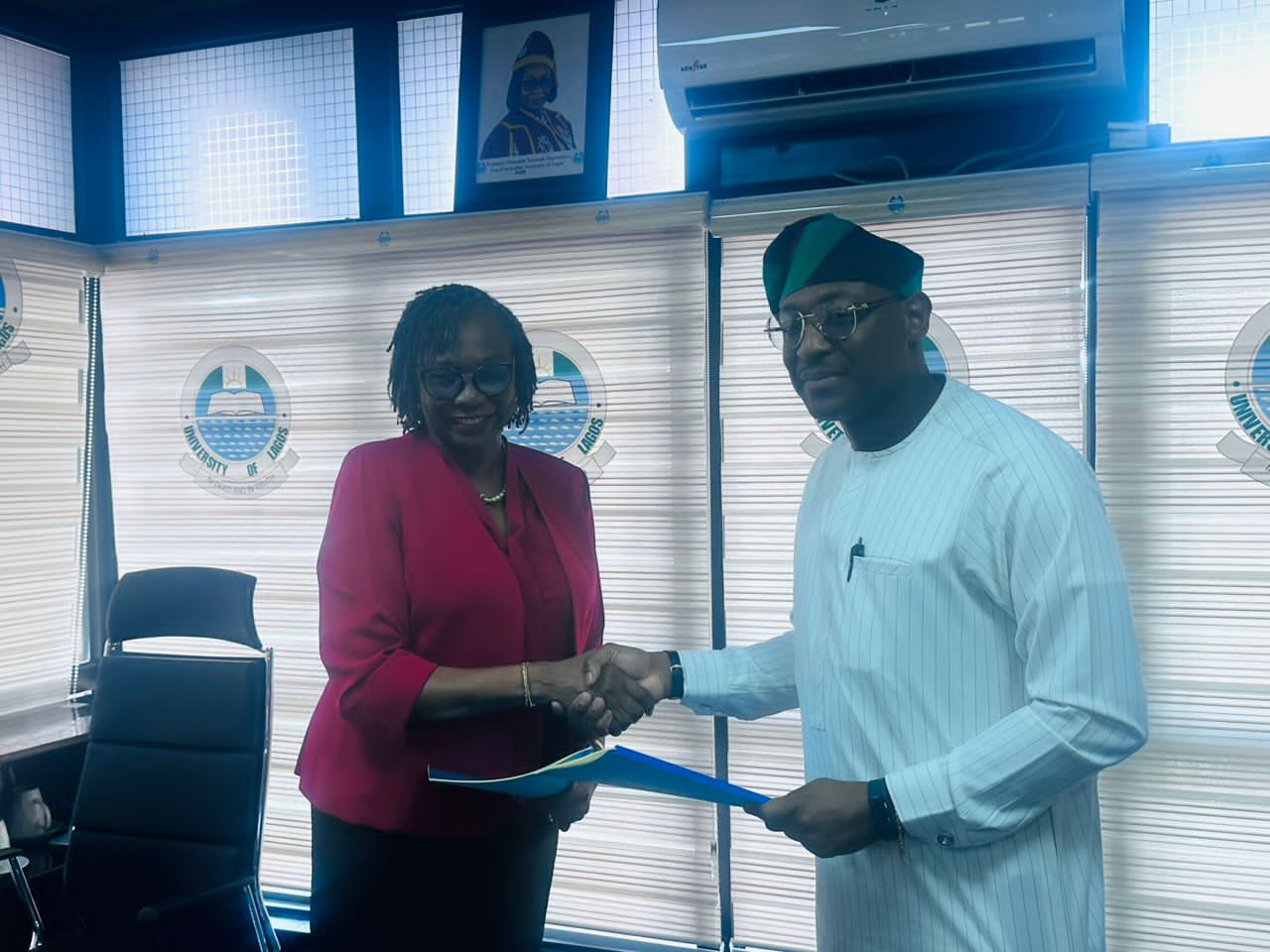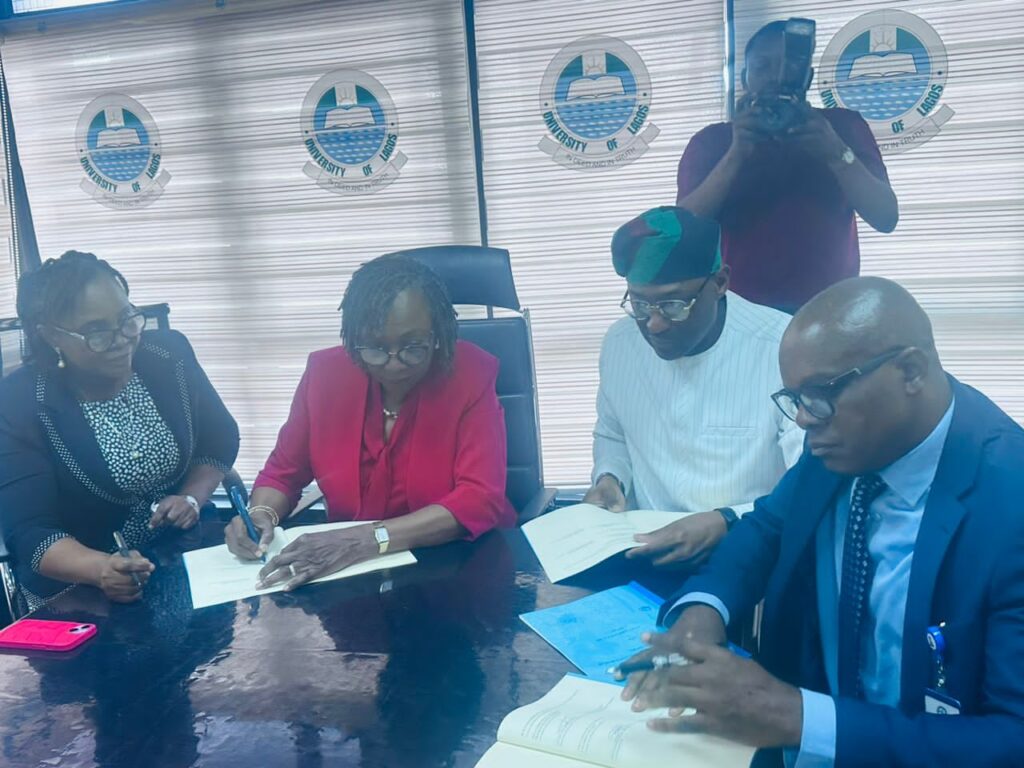NSIB, UNILAG Renew MoU to Bolster Metallurgical Science Capabilities at Abuja Airport

The Nigerian Safety Investigation Bureau (NSIB) has renewed its Memorandum of Understanding (MoU) with the University of Lagos (UNILAG) concerning the deployment of the metallurgical science laboratory at the Nnamdi Azikiwe International Airport, Abuja.
The agreement is set to enhance both institutions’ research and operational capabilities, with equipment relocation forming a crucial part of the plan.
Initially signed in July 2018, when the NSIB was known as the Accident Investigation Bureau (AIB), the MoU was extended under the current leadership of Captain Alex Badeh Jr., the NSIB’s Director-General, and Professor Folasade Ogunsola, the Vice-Chancellor of UNILAG.
The renewed agreement is expected to speed up the relocation of sophisticated laboratory equipment to UNILAG, which has been delayed for logistical reasons since the original signing.
At the MoU renewal ceremony, which took place at UNILAG’s Senate Building, Captain Badeh emphasised the need for prompt action.

“The initial agreement from 2018 wasn’t followed through due to logistics or political reasons. When I assumed office, I saw the MoU needed renewal, and we’ve taken positive steps to rectify the situation,” he said.
The Director-General also highlighted the critical role that UNILAG’s academic expertise can play in collaboration with the NSIB.
“We have equipment that we cannot currently use, and universities such as UNILAG have the capable hands to make use of them. It’s senseless to leave them idle when they can be put to productive use,” he said.
He further disclosed that, in the coming weeks, professors from UNILAG’s engineering department would visit Abuja to update the lab’s requirements and explore the latest technological advancements.
“Science evolves rapidly, and things that were once attainable may no longer be. We’ll assess what new equipment is needed and push this collaboration forward,” Badeh added.
Financial collaboration was also a key point raised by Badeh, who acknowledged the funding challenges both the NSIB and UNILAG face.
He expressed optimism that the joint venture could unlock financial support needed for both institutions.
“We’ll strive to secure the funding necessary to propel us in the right direction. Currently, we send engine parts abroad for analysis. We’re working on sending some equipment to Kenya for a case right now, but with the lab in place, this can be done locally.”
Professor Ogunsola, in her address, expressed UNILAG’s eagerness to engage in the collaboration. She noted that the equipment would be instrumental in advancing the university’s research agenda.
“We are committed to making our research demand-driven. This collaboration not only benefits the university but also contributes to Nigeria’s progress. We want the NSIB to challenge us with real-world problems that we can help solve,” he said.
Professor Samson Adeosun, Dean of the Faculty of Engineering, urged the NSIB to expedite the equipment transfer.
“The university has long anticipated the relocation of this equipment. Once in place, it will eliminate the need for us to send samples as far as Kaduna for analysis. This will elevate the laboratory’s standing and benefit the aviation industry and the nation as a whole,” he said.
The signing ceremony was attended by several key officials, including Mrs. Olakunle Makinde, the Acting Registrar of UNILAG, and senior members of both institutions.
The renewed MoU is expected to open new avenues for technological innovation and research in Nigeria’s aviation sector, positioning the nation as a regional leader in metallurgical science and safety investigation.
This development underscores the growing emphasis on collaboration between government agencies and academic institutions, with the NSIB-UNILAG partnership representing a significant step forward in harnessing Nigeria’s intellectual resources for practical, nation-building purposes.







